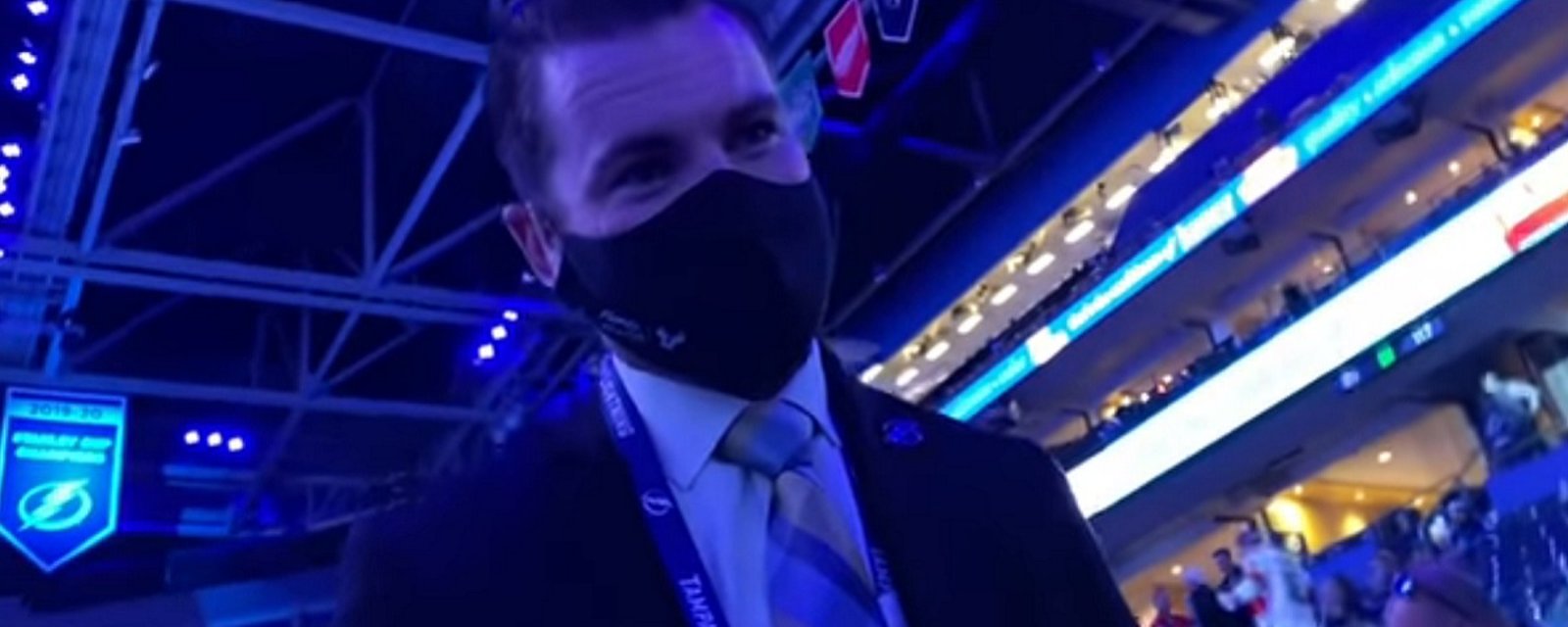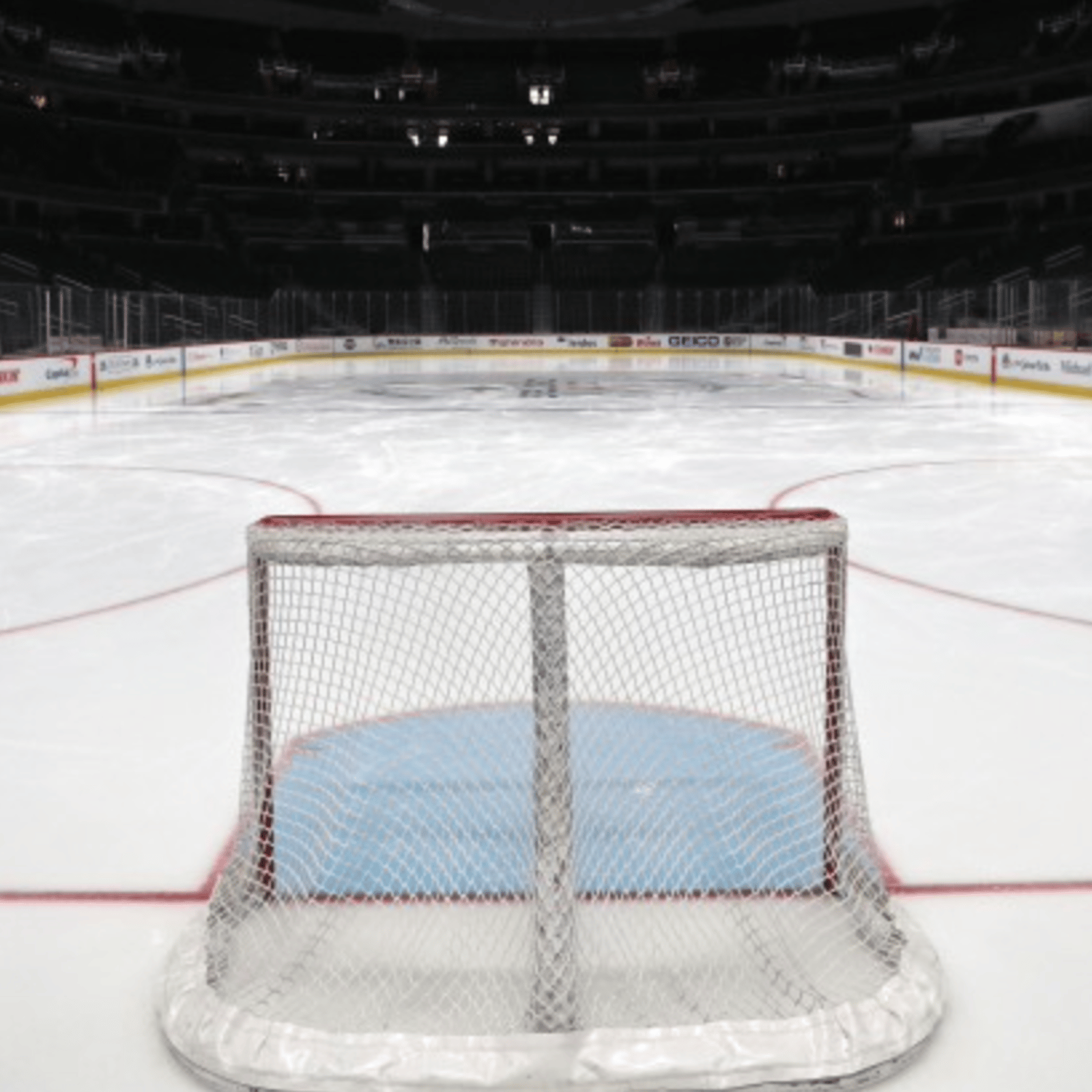
Public backlash over Lightning security's harassment of 11 year old boy forces change in policy.
Disgraceful.
HockeyFeed
The Tampa Bay Lightning made headlines this week when a video captured by a distressed father showed what he claims was the harassment of both he and his 11 year old son at the hands of Amalie Arena security staff. Amalie Arena, which is the Lightning's home venue, has a strict policy when it comes to wearing an opposing team's jersey in the "club seats" section of the arena and although that policy has been in place for several years now (since 2015) it appears things are about to change.
First, if you missed the original video two members of Amalie Arena's security staff repeatedly attempted to remove a man and his son from their seats this week because of the jersey they were wearing, with a female employee even going so far as to threaten to call law enforcement in order to have them removed from the building. The fact that a fan who had paid hundreds of dollars for his seats, and his 11 year old son, were treated in such a manner during a National Hockey League playoff game and at an NHL arena sparked tremendous backlash on social media.
Here's the video:
Thanks to the quick thinking of the father who managed to capture all of this on camera, it appears that the Lightning will now reverse this policy or at the very least make significant changes to it moving forward. ESPN reported on Friday that the Lightning will no longer enforce the policy in question moving forward, although it is unclear whether or not a new policy will be put in its place or if the restrictions will simply be removed altogether.
No doubt the public relations disaster that this proved to be for the Lightning far outweighed the benefits of having such a policy in place, although I can understand why several teams around the league have instituted similar policies in their arenas around playoff time. Teams want to drive ticket sales in their local markets to build up a regional fan base and seeing like minded supporters fill an arena on television is no doubt a better way to drive fans to want to be a part of that atmosphere than one in which the crowd is littered with jerseys from opposing teams.

- HockeyFeed
Reports that Terry Pegula has sold the Buffalo Sabres
- NHL News
- 3 minutes read

- HockeyFeed
Hockey world mourns tragic death of young team captain
- NHL News
- 3 minutes read

- HockeyFeed
Coyotes fans make a plea to Oilers fans for final game in Arizona
- NHL News
- 5 minutes read

- HockeyFeed
Marc-Andre Fleury officially announces his future
- NHL News
- 3 minutes read

- HockeyFeed
Report: Coyotes players go off on Arizona, talk about how happy they are to be leaving
- NHL News
- 6 minutes read